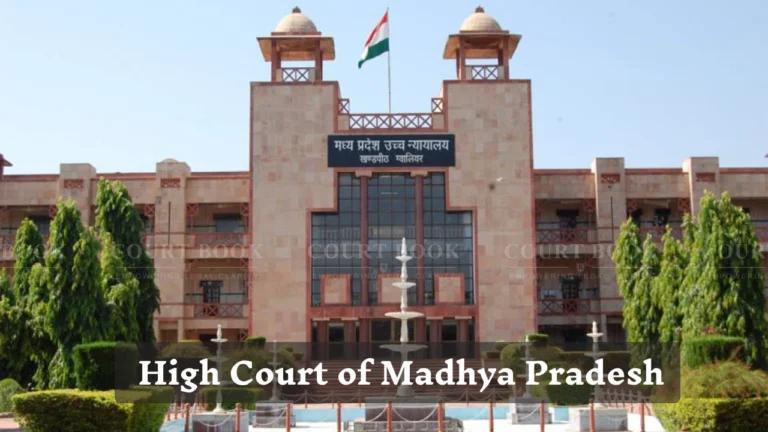The Madhya Pradesh High Court at Gwalior refused to quash an FIR against a Panchayat Secretary accused of illegally storing excavated sand. The Court emphasized that the State is the sole owner of all minerals, and unauthorized excavation by any individual or institution amounts to theft.
The case involved an application filed under Section 482 of the Cr.P.C. seeking to quash an FIR registered at Badarwas Police Station in Shivpuri district under Sections 379 and 411 of the Indian Penal Code (IPC). The applicant, Amol Singh Yadav, was a Panchayat Secretary. Sand was discovered in the house of one Narendra Yadav, who claimed it was stored by the applicant.
Read Also:- MP High Court Confirms Removal of Civil Judge for Acquitting Accused Without Written Judgments
The applicant’s counsel argued that the sand was stored for constructing a concrete cement (CC) road and referred to Rules 3 and 4 of the M.P. Mineral (Prevention of Illegal Mining, Transportation and Storage) Rules, 2022. They claimed that the Panchayat had the authority to store the sand for public works.
However, Justice Gurpal Singh Ahluwalia clarified that the rules provide an exception only for transportation and storage of legally quarried minor minerals from government lands. The Court stressed:
“State Government is the owner of every mineral and therefore the illegal excavation of the same would certainly amount to commission of theft.”
Read Also:- MP High Court Rejects Congress Leader's Plea Alleging EVM Tampering Against BJP MLA
The applicant also submitted a measurement book (Annexure P-4) to support the claim that the sand was meant for road construction. But the Court noted a discrepancy — the sanctioned road was in Ghurwar village, while the sand was found in Rijaudi village, where Narendra Yadav resided.
Further, the applicant failed to prove that the sand was legally purchased or extracted. There was also no record showing authorization for excavation. The Court highlighted that even in the absence of documentary proof, prosecution can rely on ocular evidence:
“This Court cannot ignore the statement of Narendra Yadav recorded under Section 161 Cr.P.C., in which he clearly stated the sand was stored by the applicant.”
Additionally, citing the Supreme Court's judgment in Jayant v. State of M.P. [(2021) 2 SCC 670], the High Court reiterated that compounding under the MMDR Act does not absolve an accused from proceedings under IPC:
“The offences under the MMDR Act and IPC are different and distinct… Proceedings under Sections 379 and 414 IPC can be carried further.”
Read Also:- MP High Court Orders Appointment of Schizophrenia Patient as IT Officer, Calls Disability Permanent
The judgment stressed that illegal mining and sand excavation are causing irreversible damage to the environment, especially groundwater depletion and river degradation. The Court strongly emphasized that such violations must be dealt with firmly to deter future offenders.
“Illegal excavation of sand or any other minor mineral is causing great damage to the ecological system… It has to be dealt with iron hands.”
Ultimately, based on the evidence and legal principles, the Court concluded that there was no ground to interfere and dismissed the application for quashing the FIR.
Case Title: Amol Singh Yadav Versus The State Of Madhya Pradesh And Others, Misc. Criminal Case No. 2555 Of 2023
Counsel for Applicant: Advocate Bhupendra Singh Dhakad
Counsel for Respondent/State: Advocate Dr. Anjali Gyanani












